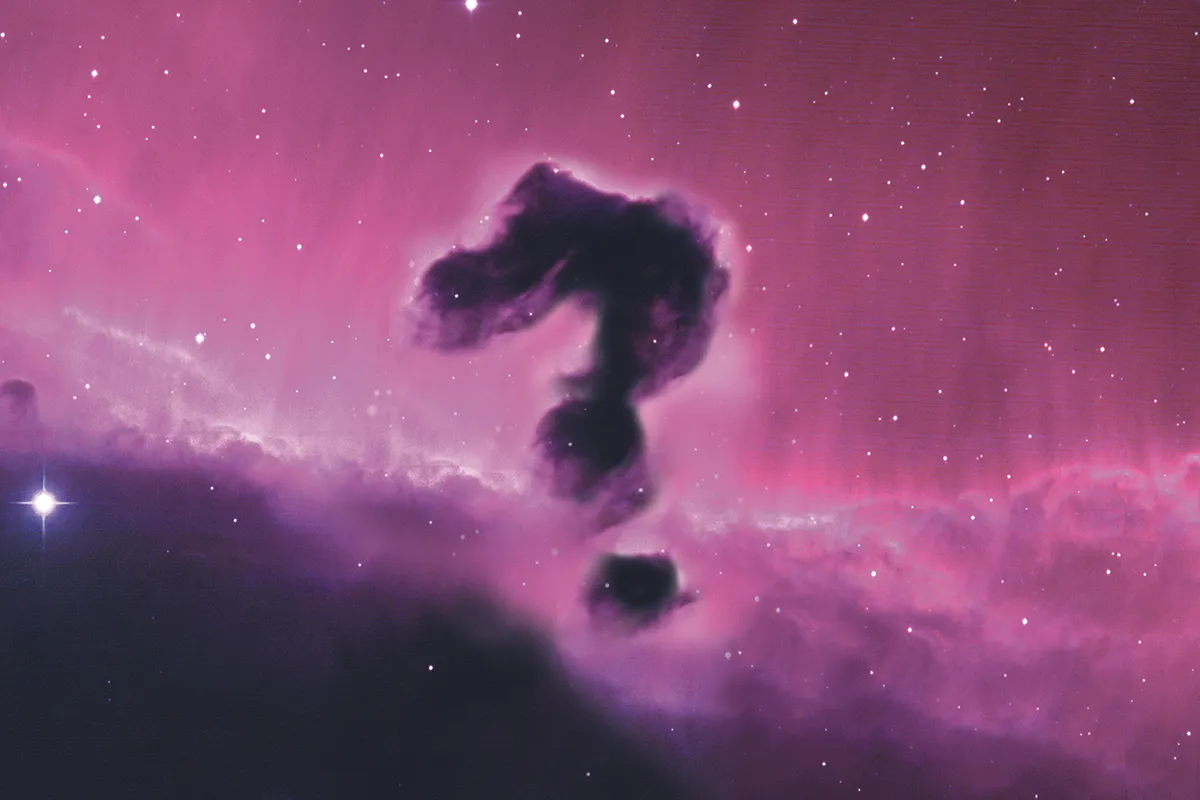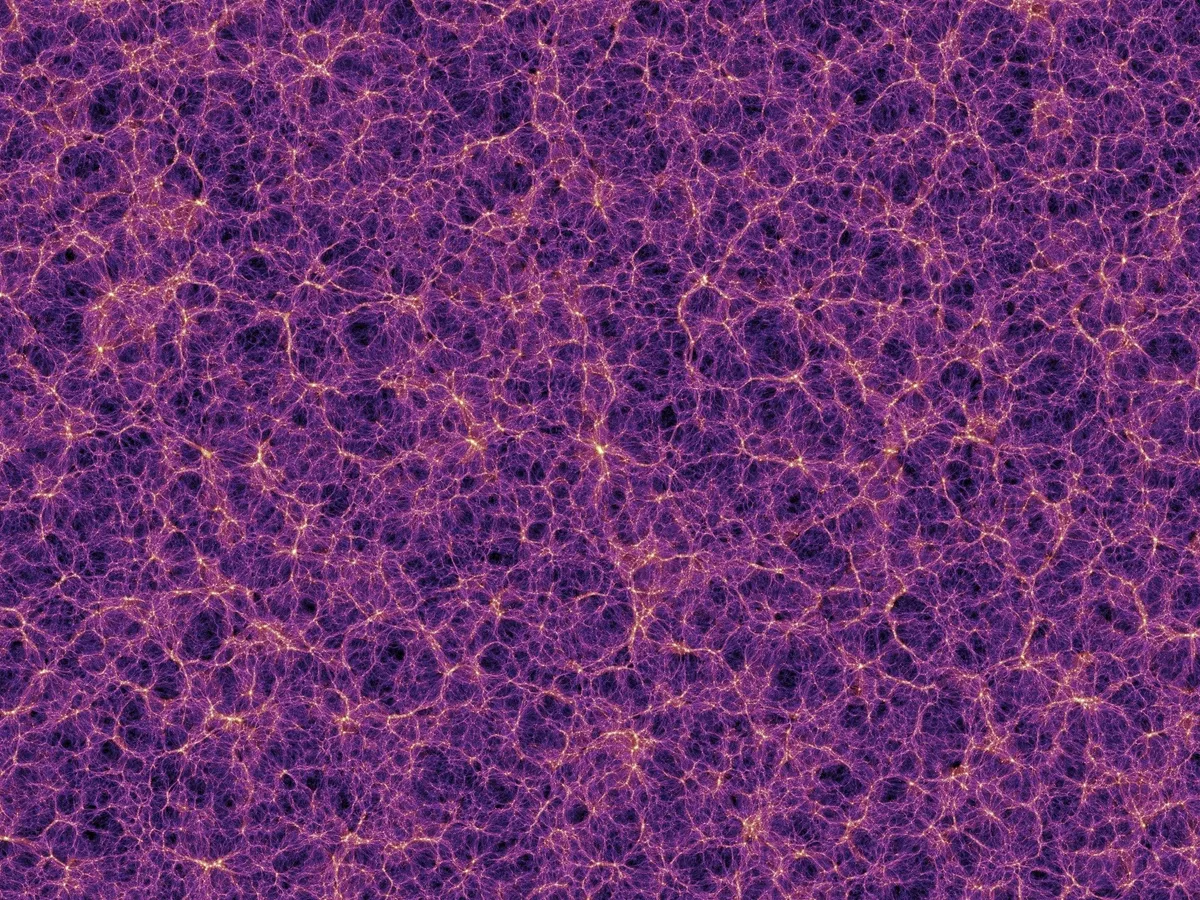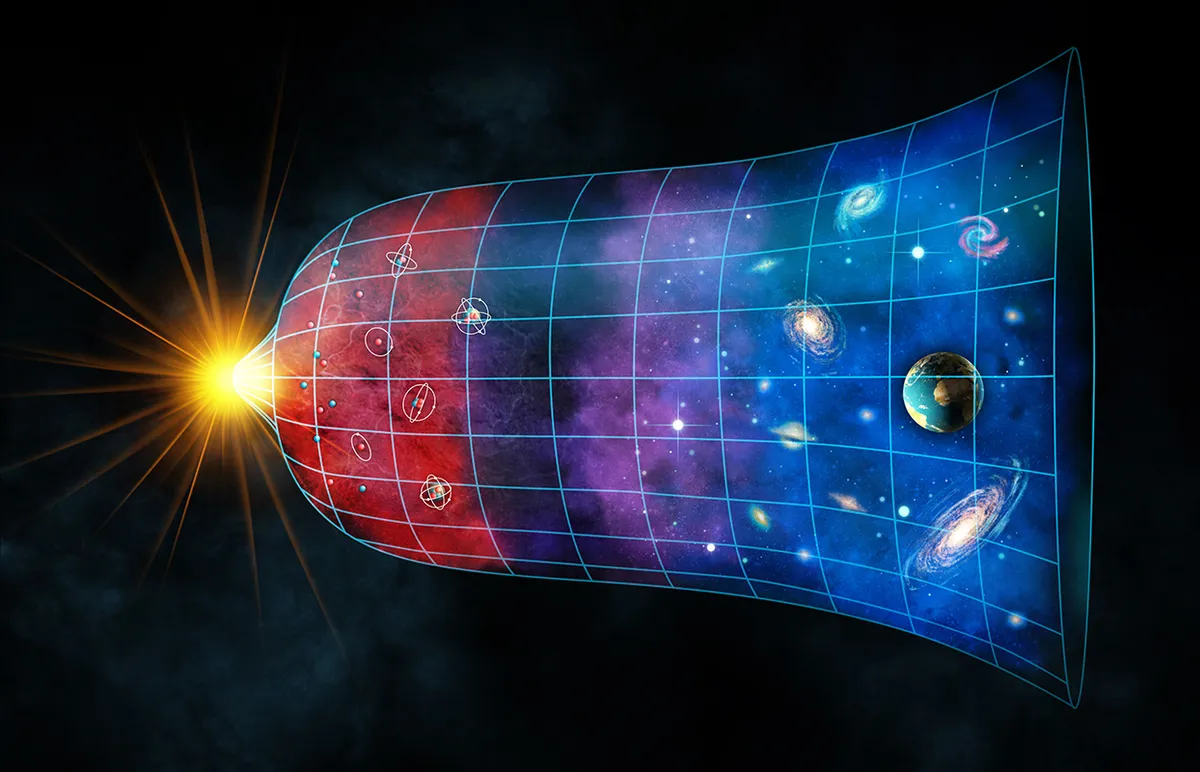Will we ever know what came before the Big Bang?
For decades, the question of what existed before the Big Bang was considered an off-limits topic in astronomy.
More cosmic science

This is because, if time began with the Big Bang then the concept of 'before’ would have no meaning.
However, a recent survey of leading physicists, conducted by my colleagues and I, indicates a shift in this thinking.
SQUIRREL_13218985

The Big Bang is no longer seen as the absolute beginning of time.
This crucial distinction stems from the dual nature of the term 'Big Bang': the Hot Big Bang and the Big Bang Singularity.
The Hot Big Bang describes the Universe evolving from an extremely hot and dense state, a concept well-supported by observations such as the distribution of galaxies, the abundance of light elements, and the cosmic microwave background radiation.
Shelving the singularity
In contrast, theories developed by Roger Penrose and Stephen Hawking in the 1960s and 1970s demonstrated that tracing the expanding Universe backward in time would lead to a moment of infinite density, curvature, and pressure – the Big Bang Singularity – which would mark an absolute beginning of time.
However, the surveyed physicists largely moved away from the singularity theory, preferring the more modest Hot Big Bang.
Several key developments have driven this change.

In 1998, the discovery of dark energy revealed a repulsive gravitational force accelerating the Universe's expansion.
This directly challenged one of Penrose and Hawking's core assumptions: that gravity is always attractive.
Furthermore, in 1979, Alan Guth proposed inflation, a period of exponential expansion in the early Universe driven by a repulsive gravitational force.
This also undermined Penrose and Hawking's assumptions.
Inflation can resolve many problems with the standard Big Bang model and is currently the leading explanation for the structure of galaxies.
Textbooks today often describe inflation as occurring just after the Big Bang, but inflation cools the Universe to near-zero temperatures.
When inflation ends, the energy from the inflating space converts into matter and radiation, which is the moment we refer to as the Big Bang.

Inflation ad infinitum?
Therefore, if we use the Hot Big Bang definition (which most physicists believe we should), then inflation must be considered a pre-Big Bang scenario.
Many inflationary cosmologists even suggest this leads to an infinite number of ‘pocket universes’ forming a multiverse.
In this scenario, what happened before our Big Bang was more inflation, and before that, even more inflation.
However, one theorem suggested that this inflationary period couldn't go back forever. But more recent work has challenged that view.
Inflation though, doesn't address another assumption made by Penrose and Hawking: that the Universe's evolution should be described by Einstein's theory of gravity, general relativity.

At the extreme densities of the Big Bang, most cosmologists believe relativity must be modified by incorporating quantum mechanics, leading to a theory of quantum gravity.
While a complete and verified theory of quantum gravity remains elusive, candidates such as string theory, loop quantum gravity, causal sets, and Horava gravity can offer tantalising insights into the Big Bang itself.
A common theme among these theories is that the Big Bang was not the ultimate beginning.
For instance, strings have a minimum size, preventing infinite compression and thus an infinitely dense singularity.
Similarly, loop quantum gravity suggests that space has a maximum capacity, leading to a 'Big Bounce' where a contracting universe precedes our current expansion.
If space is quantised and consists of ‘atoms of space’ whose number grows as the Universe expands, when it contracts we might find a primordial state where their number was zero, echoing the older idea of the Universe ‘tunnelling from nothing’.

Quantum timekeeping
Causal set theory introduces a concept of time independent of relativity, implying that even if classical clocks stop at the Big Bang, quantum ones might continue ticking.
Another intriguing idea, cosmic natural selection, holds that the Universe could reproduce itself from black holes.
In Horava gravity, the symmetries between space and time break down at the extreme temperatures of the Big Bang, fundamentally reshaping the Universe's fabric.
This could eliminate the singularity and cause the speed of light to increase indefinitely, potentially removing the need for inflation as some of its puzzles arise from Einstein's fixed cosmic speed limit.

Other cosmologists believe they can similarly bypass inflation by mimicking its effects through other subtle means.
Several cyclic schemes, proposed by prominent figures such as Nobel laureate Roger Penrose and inflation pioneer Paul Steinhardt, boldly challenge the prevailing model of the early Universe.
With the latest developments in theoretical physics embracing holography – the profound idea that dimensional reduction (the suggestion that 3D space might be described by information that exists on a 2D surface) is key to understanding quantum gravity – it's not surprising this concept has been applied to the Big Bang.

Credit: Andreus / iStock / Getty Images Plus
Dissolving time
This suggests that time itself may dissolve as we enter the quantum gravity era, reminiscent of an earlier proposal by Hawking himself to eliminate the singularity.
Perhaps most provocatively, a few brave theorists venture to exploit the very nature of general relativity, where spacetime can curve so dramatically that it creates a loop, allowing the Universe to build itself.
Today, the old certainties of a Universe born from an infinite singularity are gone, replaced by a host of intriguing but still unconfirmed possibilities.
Future probes of gravitational waves from the Big Bang itself may help us determine the correct model of the early Universe.
While the Hot Big Bang is not in doubt, few today take the idea of a Big Bang singularity seriously.
Consequently, astronomers may be misleading the public when they state the Universe is 13.8 billion years old; it's more accurate to say it's at least that age.
It could be far more ancient, with a past stretching to infinity.


